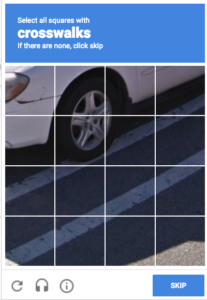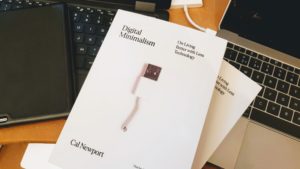For what seems like an age I have planned to restart blogging the useful things I have found or learnt during the week. Partly as a resource and reference for myself, and partly as a way of curating the web – Google determines what is useful partly by what is linked to, and what Google determines is useful is, largely, what gets looked at. If you want to make a better Internet, then make it so. I’m also moving from PESOS to POSSE.
Facebook – we’re not who you think we are.
This week Zuck pulled a handbrake turn at Facebook: From saying “privacy is dead” to saying “privacy is the focus of what we’ll do.” I’m not buying it. Facebook has staggered from one controversy to another in recent times. I uninstalled Messenger from all my devices last year (I’ll come back to that later here), and as their platforms consolidate (if the EU allows), I’ll uninstall the rest of the apps. There is a big different between privacy and confidentiality. It isn’t just about how things are secured, it is about who gets access to them. Facebook does not have a good track record on that front. Facebook monetise access to data, which is a pedantic difference from selling it. There is little sign that model is going to change, as a peek inside the company shows. Of course, surveillance capitalism and state surveillance might have unintended consequences that benefit the public, as the Chinese Government is discovering this week, after a large data breech. The challenge with such large platforms is that they have undue control over what we read and see, and create some very unpleasant jobs in controlling it.
The sharing economy – not caring.
Ten years on from it’s emergence, I am finally feeling like I have move from contrarian to mainstream in my view on sharing economy / gig economy companies. Not because I have changed my view, but because the world has. I have never signed up to Uber, and I have never paid for an Uber. I rode in one once, as someone was nice enough to get me an Uber, and I wasn’t going to shun the kindness, and it was a chance to talk to a driver. This week the Atlantic ran a piece on Uber – The Servant Economy. It covers a number of other businesses that are in the “Uber-for-X” group. It isn’t pretty – loosing money, while sucking value out of markets. The sharing economy, despite the hype and promise, has turned out to be a scam: stealing from the poor to, literally, deliver to the rich. Of course we can still all help to save the planet by using an eco-friendly font.
Machine Learning / AI.
If you aren’t a coder, you might want to skip this paragraph, but do read this amazing explanation of what computer programing is and how it works. Machine learning continues to be an area where I am honing my skills and knowledge. The recent bigs news has been around OpenAI’s GPT-2 model. OpenAI is the Elon Musk backed non-profit, developing “friendly AI”. They kicked off some controversy in not releasing data and parameters, in order to protect the universe from a deluge of machine generated non-sense: “We’ve trained a large-scale unsupervised language model which generates coherent paragraphs of text, achieves state-of-the-art performance on many language modeling benchmarks, and performs rudimentary reading comprehension, machine translation, question answering, and summarization — all without task-specific training.” (link). This sort of Natural Language Processing is something I am particularly interested in. Sentiment analysis is now straight forward, and building predictive models is getting easier and easier – a few dozen lines of code can be used to predict player performance in FIFA19. I said AI in the title, just to wind up my AI friends – the difference between AI and Machine Learning is that “one is written in Python, the other in powerpoint slides” (via Mat Velloso). Most AI start ups have no AI. I was set this captcha challenge this week, before I could log into a website. Thankfully I know what a crosswalk is from American TV, but even then, I am wondering just how smart they want me to be?

Cyber Security
It wasn’t a good week for Chrome – if you use it, update it, right now. It was also a bad week for Intel, with another problem in their chips identified. Not much to be done about this one. In other news, it turns out SMEs still suck at cyber security, so it is good to see more resources available – the Welsh government has a bus for that, and pagerduty have made their internal security training available online. Mean while KPMG has learnt that it is hard selling cloud accounting to SMEs and has thrown in the towel.
Decluttering.
From a research perspective, it has been know that clutter is bad, even clutter on your computer desktop – it can even stress out doctors and lead to slower decisions. I have been on a gradual mission to declutter, physically and digitally. Lots of clothes have gone off to charity, and I am systematically uninstalling apps from devices – even Twitter is now just something I use via a webpage. It is not just to making a more joyful work environment, it is increasing productivity and well being. A few online conversations with Cal Newport have been useful, and his latest book is in my ‘to read’ queue [if you buy it via that link, I get a bit for money to fund my book habit :)]. Removing digital clutter is quite a journey.
People, eh?
There are challenging people, and there are amazing people. It is International Women’s Day, and Dave Trott highlighted Ruth Bader Ginsburg – “Don’t just ask for what you want”. People are one thing you can’t declutter of course (or can you?). It is good to have a network of people around you who help you learn, but people are messy and complicated. Gretchen Rubin has an interesting model for dealing with people, based on their tendencies. Are you a rebel, an upholder, a questioner or an obliger?






